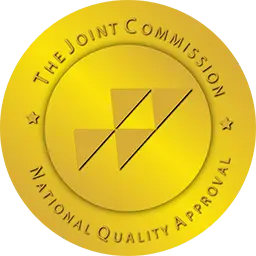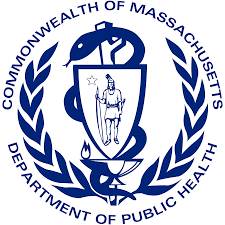Adolescence is a transformative phase marked by rapid physical, emotional, and cognitive changes. In Massachusetts, teenagers face a myriad of challenges impacting their mental health. These factors, from academic pressures to societal expectations, contribute to a complex landscape.
According to the Centers for Disease Control and Prevention, depression is the second most common disorder in teens, affecting about 15% of them. This blog aims to delve deeper into holistic approaches to teen mental health in Massachusetts, acknowledging the multifaceted nature of adolescent well-being.
The Landscape of Teenage Mental Health in Massachusetts
Massachusetts, like many regions, grapples with rising concerns regarding adolescent mental health. Recent statistics underscore the prevalence of issues such as anxiety, depression, and substance abuse among teenagers.
These challenges affect individuals and permeate families, schools, and communities. Contributing factors include familial dynamics, peer influences, academic stressors, and the pervasive impact of media and culture. Well, maybe your mom was right! The smartphone is the real reason behind all your problems.
However, understanding the intricacies of these factors is crucial for developing effective strategies to address and prevent mental health issues among teenagers.
Embracing Holistic Approaches to Teen Mental Health in Massachusetts – Top 6 Benefits
Holistic approaches acknowledge the interconnectedness of physical, emotional, and social well-being. Unlike conventional methods that often focus on specific symptoms, holistic medicine and therapy address the whole person, recognizing that each facet of an individual’s life is interconnected.
1. Comprehensive Healing
Holistic approaches go beyond symptom management; they seek to holistically heal by addressing the root causes of mental health issues. By examining the interplay between various life dimensions, these methods provide a more profound path to healing.
2. Empowerment and Self-Discovery
Holistic therapies empower teenagers to engage in their healing process actively. Practices such as mindfulness, yoga, and expressive arts encourage self-discovery, helping adolescents build a stronger sense of identity and self-awareness.
3. Enhanced Resilience
Holistic approaches foster resilience by promoting self-regulation and developing coping mechanisms. Adolescents engaging in holistic therapies often demonstrate increased mental strength and emotional well-being, equipping them to navigate life’s challenges more easily.
4. Long-term Sustainability
Holistic treatments emphasize sustainable lifestyle changes and coping strategies. Rather than offering temporary relief, these approaches aim to instill habits that support ongoing mental health and well-being throughout a teenager’s life.
5. Improved Emotional Intelligence
Holistic approaches often incorporate practices that enhance emotional intelligence. Through mindfulness exercises, expressive arts, or therapy sessions, teenagers learn to identify, understand, and manage their emotions, improving interpersonal relationships.

6. Holistic Education and Skill Building
Holistic approaches often involve educating teenagers about various aspects of well-being, including nutrition, mindfulness, and stress management. This educational component empowers adolescents with the knowledge and skills to make informed choices for their mental health.
Resources Available for Teenage Mental Health in Massachusetts
Massachusetts has witnessed the emergence of several holistic programs and resources dedicated to supporting teen mental health. These resources exemplify the commitment to comprehensive care, acknowledging the diverse needs of adolescents.
Newport Academy – A Comprehensive Holistic Approach
Newport Academy stands as a leading provider of holistic treatment for teens. Their approach integrates evidence-based therapeutic practices with experiential modalities. This includes individual and group therapy, adventure therapy, and equine-assisted therapy. By addressing the emotional, physical, and social aspects of a teenager’s life, Newport Academy aims to foster sustainable well-being.
DMH Young Adult Resource Guide: Navigating Holistic Support
The Department of Mental Health (DMH) Young Adult Resource Guide offers a wealth of information on holistic resources available to teens in Massachusetts. From counseling services to community-based programs, the guide is a valuable tool for adolescents seeking diverse avenues for mental health support.
Research and Studies Validating Holistic Approaches
Orth and van Wyk’s integrative review and articles like “Rethinking Mental Wellness Among Adolescents” contribute to the growing body of research supporting holistic approaches. These studies emphasize the effectiveness of holistic treatments in addressing the root causes of teen mental health issues, paving the way for informed and evidence-based interventions.
Success Stories: Voices of Resilience
Real-life success stories underscore the transformative impact of holistic treatments on teen mental wellness. Personal narratives highlight how individuals have overcome challenges, developed coping mechanisms, and achieved improved overall well-being through holistic approaches. You can read several positive reviews online for better understanding.
Types of Holistic Teenage Mental Health Therapies Available in Massachusetts
Mindfulness Meditation
Mindfulness meditation involves bringing attention to the present moment without judgment. Teens are guided to focus on their breath, sensations, or thoughts. This exercise improves focus, lowers stress levels, and increases self-awareness. Mindfulness meditation fosters emotional regulation and resilience by teaching adolescents to be present in the moment.
Yoga and Movement Therapy
Yoga and movement therapy combines physical postures, breathwork, and mindfulness. These practices promote physical well-being, reduce anxiety, and improve body awareness. Integrating mindful movement with breath offers teenagers a holistic approach to mental health, emphasizing the mind-body connection.
Art and Music Therapy
Art and music therapy utilize creative expressions to support emotional well-being. Through various artistic and musical mediums, teens can explore and process emotions. These therapies facilitate self-expression, boost creativity, and enhance communication skills, providing a unique avenue for adolescents to navigate their internal worlds.
Nutritional Therapy
Nutritional therapy focuses on the impact of diet on mental health. A balanced and nourishing diet is tailored to individual needs, supporting brain function and overall health. This approach recognizes the intricate connection between nutrition and mental well-being, offering a comprehensive strategy for promoting resilience in teenagers.
Initiatives Taken By Teenage Mental Health Centers in Massachusetts
Educational Programs
Implementing holistic mental health education programs in schools equips teenagers with coping skills, emotional intelligence, and resilience. Integrating holistic practices into school curricula fosters a proactive approach to mental well-being.
Telehealth and Online Resources
Utilizing technology to make holistic resources accessible, especially in remote areas, overcomes geographical barriers. Virtual therapy sessions, mindfulness apps, and online resources enhance accessibility, providing consistent support.
Family Involvement and Support
Recognizing the vital role of families in holistic teen mental health strengthens family bonds, enhances communication, and provides a holistic support system. Involving families in therapy sessions, education programs, and ongoing mental health discussions fosters a comprehensive approach.
Integration of Traditional and Holistic Approaches
Collaborating with traditional mental health methods for a comprehensive approach utilizes the strengths of both conventional and holistic methods to address teen mental health. Encouraging communication and collaboration between mental health professionals, educators, and holistic practitioners enhances the overall efficacy of interventions.
Preventative Strategies
Focusing on preventative measures to promote long-term mental health reduces the incidence of mental health issues. This creates a proactive approach to well-being by integrating mindfulness practices, stress reduction techniques, and mental health education into school and community programs.
Final Words
To address the complex landscape of adolescent mental health in Massachusetts, a holistic perspective is imperative. Understanding root causes and embracing holistic approaches can foster an environment that nurtures teens’ mental well-being.
In moving forward, increased awareness and action are urgently needed. Parents, educators, policymakers, and teenagers can collaborate to create a supportive ecosystem. As we strive for positive change, we invite you to participate actively in this movement.
Whether you are a parent, educator, policymaker, or a concerned individual, consider how you can contribute to creating a supportive environment for teenage mental well-being in your community. Let’s build a future where holistic mental health is a priority and Massachusetts teenagers can thrive – call 888.557.1552.



